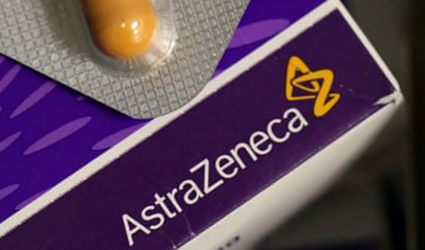Orphan Designation Granted to AZ and MSD’s Neurofibromatosis Drug
August 7, 2018
Source: PharmaTimes
 1,054
1,054

AstraZeneca and MSD's neurofibromatosis type 1 (NF1) drug, selumetinib, a MEK 1/2 inhibitor, receives orphan designation by the EMA.
"There is no cure for NF1, and current treatment choices for these patients are very limited," said Sean Bohen, AZ's Executive Vice President, Global Medicines Development and Chief Medical Office. "The granting of an orphan designation is a positive step forward for children with NF1 and their families."
The promising advantage of selumetinib in NF1 is being studied in the Phase I/II SPRINT trial in pediatric patients with non-surgically treatable NF1-related Plexiform neurofibromas (PNs). PNs are benign tumors on nerve sheaths that occur in 20-50% of patients, and as they persist to grow in number and size and result in mild-to-grave symptoms such as pain, motor dysfunction and deformity. Complete results are expected later in 2018.
The NF1 gene gives instructions to develop a protein, neurofibromin, which negatively regulates the RAS/MAPK pathway, serving to control cell growth, differentiation and survival. Alterations in the NF1 gene may cause irregularities in RAS/RAF/MEK/ERK signaling, which can cause cells to mature, split and multiply in an unrestrained manner, possibly culminating in tumor growth. Selumetinib restrains the MEK enzyme in this pathway, possibly leading to inhibition of tumor growth.
AZ and MSD declared global strategic oncology partnership in July 2017 to co-create and co-commercialise selumetinib and Lynparza, the world's first PARP inhibitor. In collaboration, the companies will develop Lynparza and selumetinib in combination with other potential new drugs and as monotherapies. Singularly, the companies will develop Lynparza and selumetinib in combination with their respective PD-L1 and PD-1 medicines.
By DduRead more on
- Alchemab to collaborate with AstraZeneca on prostate cancer research May 7, 2021
- AZ’s Farxiga Gets FDA Priority Review For Heart Failure January 8, 2020
- Fasenra Granted US Orphan Drug Designation for Eosinophilic Oesophagitis October 8, 2019
- Breakthrough Device Designation Granted to Digital Intervention for Alzheimer’s August 27, 2018
- FDA Approved Eye Drop Oxervate to Treat Neurotrophic Keratitis August 27, 2018
your submission has already been received.
OK
Subscribe
Please enter a valid Email address!
Submit
The most relevant industry news & insight will be sent to you every two weeks.



